Created February 12, 2026
Moltbook and OpenClaw agents still seem to be the talk of the town after going viral in January 2026. Time for a few brief answers to the frequently asked questions (thanks to Nicolas Eggen of Nau media AG for providing the questions). So here it is: The “how to stay sane” FAQ on Moltbook/OpenClaw.
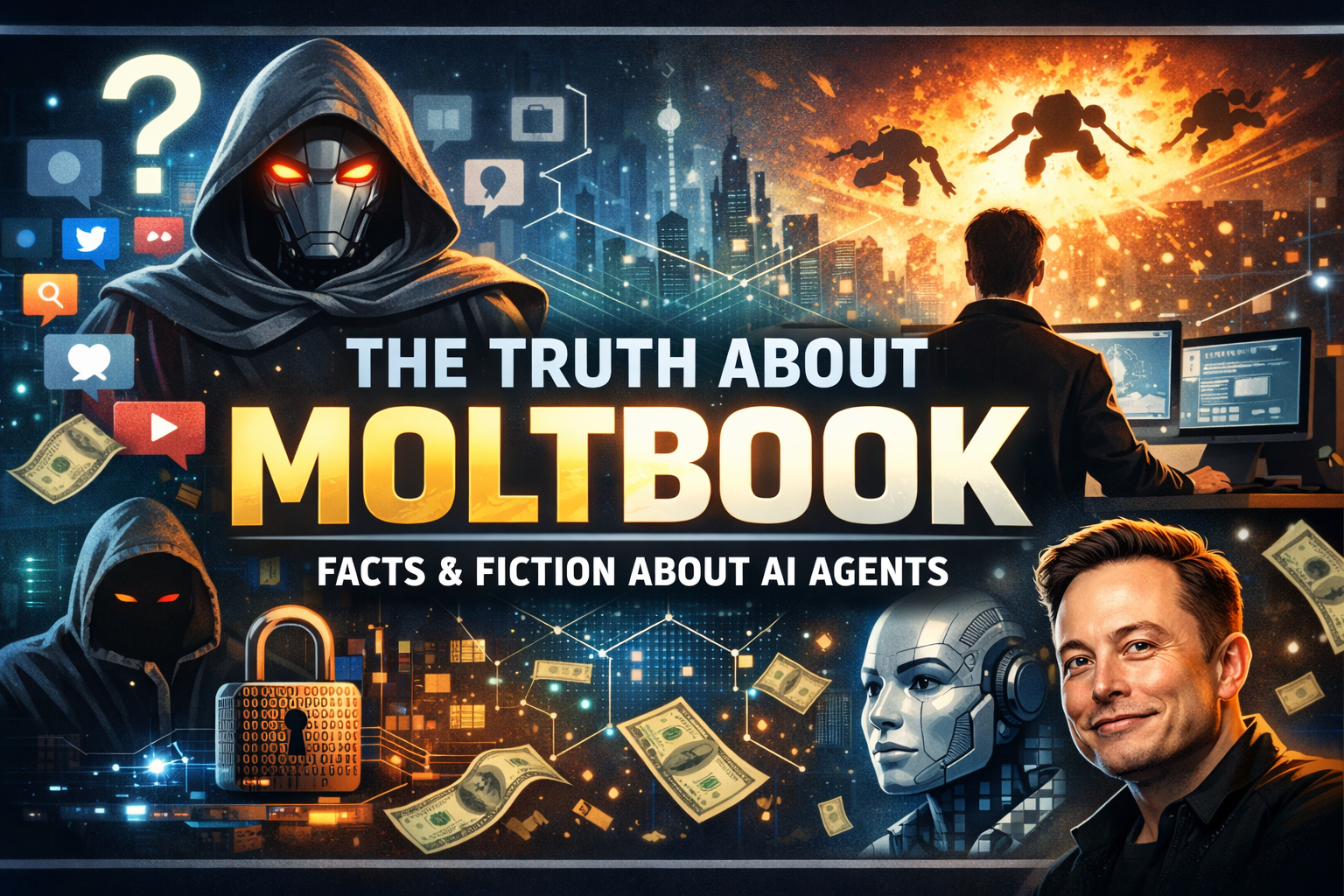
Read More
Category: AI, society, agents, narratives, AGI
Updated February 09, 2026 (created: October 27, 2025)
A hopeful, humane future with AI is possible. One that is decidedly different from the scenarios that are currently fashionable (human extinction, massive job displacement, useless class, et cetera). Have a look at 2035.
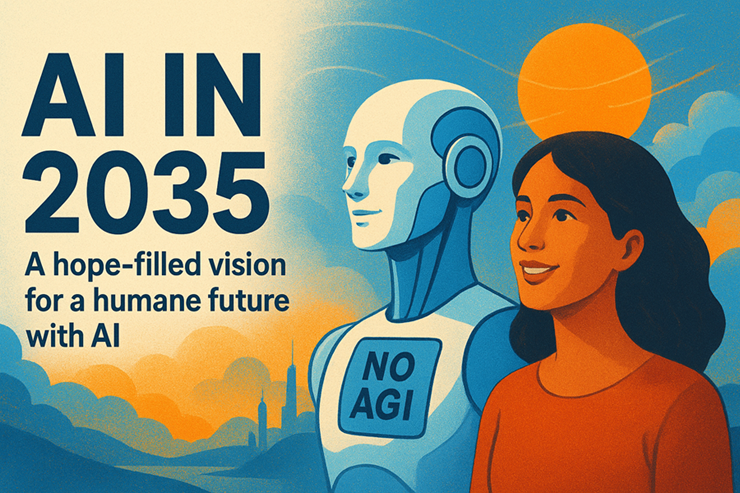
Read More
Category: AI, society, hope, new narratives, pro-human AI, AGI
Updated January 07, 2026 (created: September 09, 2016)
Dear (prospective) ZHAW student, a very warm welcome to academia! You may just have entered the bachelor’s programme or “Fachstudium”, or you are already a mature engineer, ready to start your master’s or PhD studies - chances are you haven’t been exposed much yet to our setting of learning within an applied research and development context.

Read More
Category: education, research, mentoring, writing
Updated December 21, 2025 (created: December 04, 2025)
How can AI systems be designed to help us living up to our full human potential, rather than undermining core aspects like relationality, responsibility and autonomy? “Pro-human AI tech design”, or “pro-human AI” in short, is the field of study concerned with these questions. But why is it necessary in the first place?
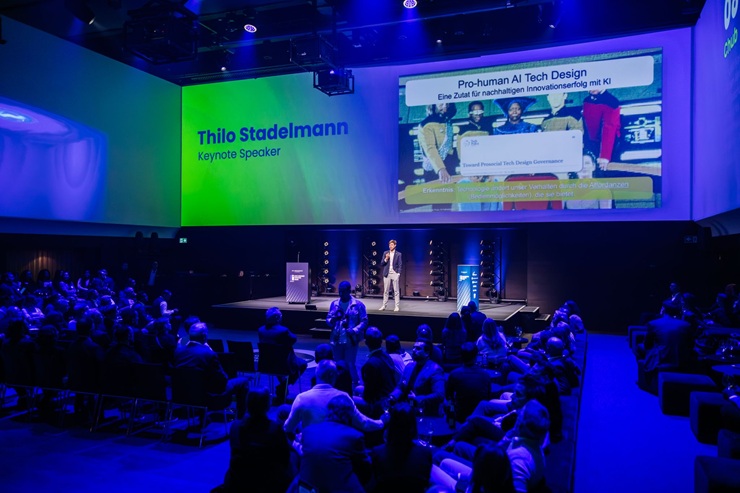
Read More
Category: AI, society, hope, pro-human AI
Updated July 02, 2025 (created: April 11, 2025)
It is 1997. Chess world champion Garri Kasparov takes on Deep Blue - the most advanced chess AI system of its time. High noon for human versus machine. Then it happens, already in the first game: Kasparov observes an AI move that he cannot understand.
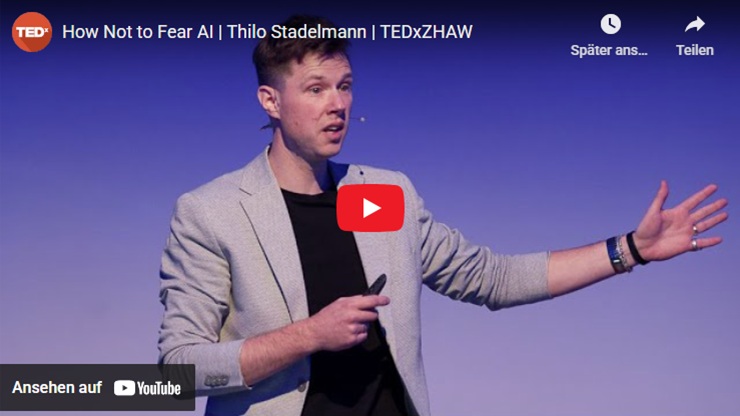
Read More
Category: AI, society, hope, risk, philosophy, talk
Created November 26, 2024
So what is happening in sports due to AI? Well, the game has changed, as one could say. Diverse AI methods, from data analysis on wearables’ data streams to computer vision methods for electronic line calling in Tennis, are improving many aspects, from athletes’ health and game plan to fairness of decisions.
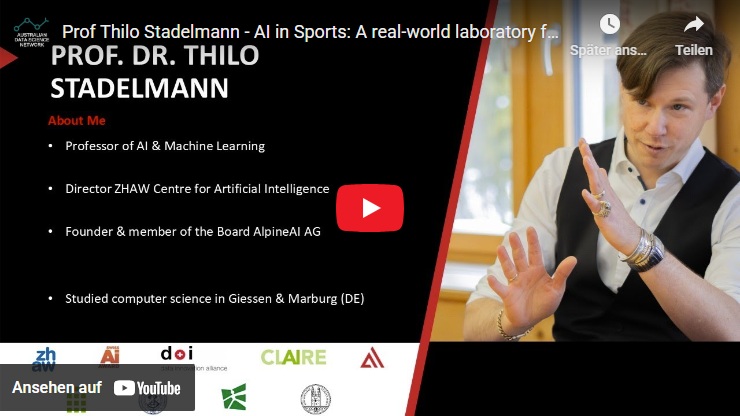
Read More
Category: AI, society, hope, risk, human value, humanism, philosophy, talk
Created November 18, 2024
Hope is the most sought-after commodity today. Whether we talk about data protection in university administration, the challenges of education on all levels, disruption by and adoption of AI in business, the future of representation learning, or the questions of everyday life: Is there a better narrative than the standard doomsday scenarios broadcasted relentlessly by the media?
Read More
Category: AI, society, hope, risk, human value, humanism, philosophy
Updated October 23, 2024 (created: February 12, 2018)
This is an occasionally updated collection of links to valuable reads from non-technical newspapers: opinion pieces though, but thought-provoking. (Mostly) in German (thus the title). Some might be after a paywall after some time - sorry for that!
Read More
Category: society, readings
Created October 09, 2024
I talked about hypothetical and real risks of AI this week at the University of Cambridge’s Westminster College.
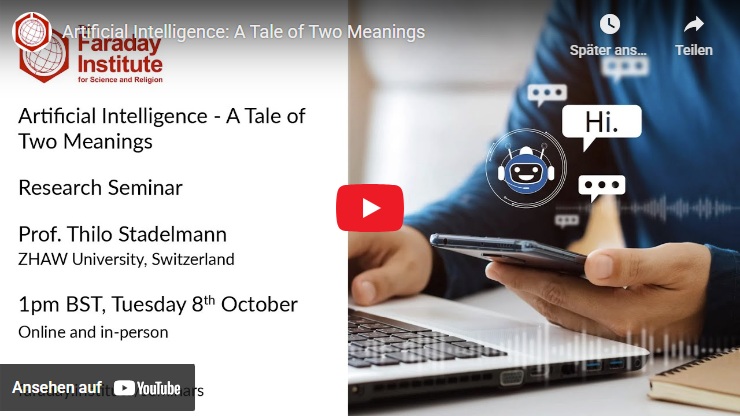
Read More
Category: AI, society, hope, risk, human value, humanism, philosophy, talk
Updated January 30, 2023 (created: June 22, 2016)
Here’s a (irregularly updated) collection of links to my favourite MOOCs and other ressources on learning or deepen Artificial Intelligence and in particular Machine Learning / Deep Learning skills:
Read More
Category: education, research, mentoring, MOOCs, ML, RL, CNNs, RNNs
Updated November 23, 2022 (created: January 19, 2017)
Every once in a while you have to write a draft for some sort of text, as a starting point for somebody to give feedback or improve upon it – maybe a short abstract, a chapter for a thesis or paper, an important email or a proposal. So, what makes up a good draft?
Read More
Category: education, writing
Updated February 24, 2022 (created: February 23, 2022)
After the COVID-19-induced shift to home offices last year, I, an ardent advocate of on-site teaching and networking, quickly began appreciating the efficiency that working from a home office offers.
Read More
Category: spirituality, faith, buisness-goggles, leadership, efficiency
Updated November 16, 2021 (created: September 22, 2021)
Here’s a small script I wrote, using Python, scholarly and Google scholar, to calculate one’s h-Index per year (so you can see how it evolved over your life as a researcher). It tells me in what periods of my career I have been most active in producing most ‘impactful’ research output. I missed such capability in otherwise great tools for citation analysis like Harzing’s Publish or Perish.
Read More
Category: research, code
Updated November 18, 2020 (created: September 10, 2019)
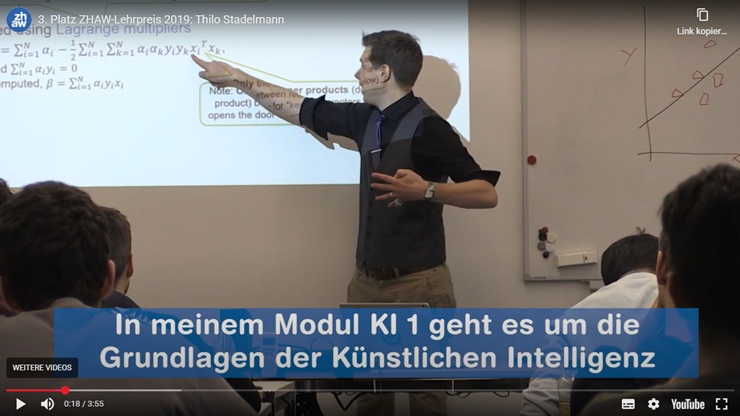
This post represents my didactic concept for the AI course. It was awarded with the 3rd prize in the annual best teaching award competition of my university in 2019. In German (an enhanced English version is available as a technical report and research paper).
Read More
Category: education, teaching
Created October 05, 2019
It is not my habbit to come up with new year’s resolutions, but early in 2018 I did: to disarm verbally.
Read More
Category: philosophy, research, ethics, reflection
Updated April 29, 2019 (created: May 03, 2018)
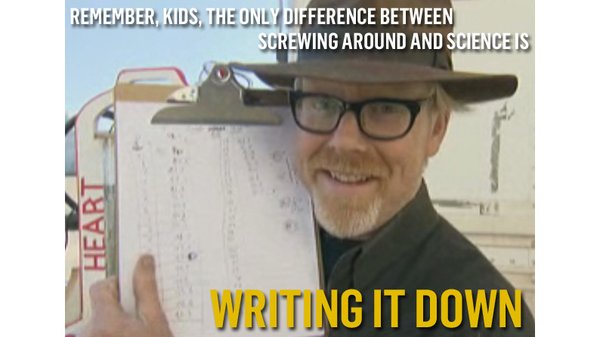
I enjoy mentoring people and sharing my personal lessons learned. One of my key advices to become a (more) successful student and researcher with respect to writing excellent theses is to argue/reason well in your writeup: motivate your thoughts, justify your choices, and reason over your findings. As you not only make assertions or claims, but reason over their pros and cons and convince your reader by the power of argument (and references), you will position your work for highest accolades.
Read More
Category: education, doing research, mentoring
Created October 18, 2018
Recently, I engaged in a discussion within the Expert Group on Data Ethics on the pros and cons of the term “algorithmic bias”, which describes the fact that certain people groups might be discriminated by an automatic decision making system, and how to prevent this. While every research in this sphere is very important and rightly so at the forefront of current discussions in data science, artificial intelligence and digital ethics (see e.g. here, here or here), I think the term itself might do more harm than good in the public discussion.
Read More
Category: digitalization, ethics
Created September 11, 2018
What kind of digitalization support do SMEs need? This question was pondered on August 29 when Innosuisse assembled their experts, coaches, staff members and executives under the beautiful roof of CERN’s Globe of Science and Innovation for the Innosuisse Plenary 2018. The topic of innovation was omnipresent, and I had been invited as a representative of the Swiss Alliance for Data-Intensive Services to start the discussion in the breakout session on “digitalization and SMEs” with a keynote. I delivered some pointed hypotheses based on the experience of almost 2 years of Data+Service and numerous CTI/Innosuisse projects. A recording of the presentation is available online, together with the slides. The talk follows the important properties of digital innovations (namely, being interdisciplinary, aiming at automation at scale, and coming at a high speed). These are my conclusions, originally published on the Data+Service blog.
Read More
Category: digitalization, funding, research
Created August 27, 2018
I recently took David Silver’s online class on reinforcement learning (syllabus & slides and video lectures) to get a more solid understanding of his work at DeepMind on AlphaZero (paper and more explanatory blog post) etc. I enjoyed it as a very accessible yet practical introduction to RL. Here are the notes I took during the class.
Read More
Category: education, MOOCs, reinforcement learing, RL, MCTS, AlphaZero
Updated June 23, 2018 (created: May 24, 2018)
There is a whole body of literature on the topic of faith and science (and a good example is the work of C.S. Lewis, even if it is a rather unorthodox specimen). Here’s another one, unorthodox in not attempting apologetics, but merely relaying a testimony in the sphere of science.
Read More
Category: research, faith, scientific conduct
Updated June 06, 2018 (created: November 22, 2017)
This is a collection of links to some interesting recent theoretical advances in order to better understand deep learning. It is not complete, not even comprehensive. It is more of a reading list for the upcoming Christmas holidays. More on the topic of deep learning theory can be found in this new MOOC by Stanford professors Hatef Monajemi, David Donoho and Vardan Papyan, in this DL theory class by Ioannis Mitliagkas of U Montreal, and in this overview blogpost by Dmytrii S. on why deep neural nets generalize so well. A good collection of links is also included in this blog post by Carlos Perez.
Read More
Category: research, readings, deep learning
Created May 18, 2018
Coming to the end of a writing-heavy week with 5 paper deadlines, the experience from these publishing processes reinforced the three necessary conditions to me on when to publish (and on what to focus in the paper, besides the story line). When is my work advanced enough that I can publish it? When can I attempt not only writing it down (you should always do it as it clears one’s thoughts), but also making it accessible for the rest of the world (being aware of your responsibility for the body of human knowledge, the valuable time of potential readers, and your future reputation)?
Read More
Category: education, writing, mentoring
Created April 06, 2018
This post represents my contribution to the best teaching award competition of my university in 2017; it was awarded a final round nomination (best 10).
Read More
Category: education, teaching, scientific method
Updated February 18, 2018 (created: November 30, 2016)
Recently, I got intrigued by so-called Generative Adversarial Nets or GANs (see the original paper, the important improvement to make it practical, an easy to understand implementation and a nice application here). So much so that I derusted my programming and linux command line operation skills, learned docker, and started playing around myself for the first time in several month.
Read More
Category: education, research, GANs
Created October 17, 2017
For a young researcher the diversification in the academic landscape can be a huge challenge: am I interested / proficient in machine learning - or pattern recognition? Am I a computer vision guy (because I work mainly on images), or in the field of predictive maintenance (because I also worked on such tasks)? Am I a data miner because I mine data, and can I also add artificial intelligence to the list of my research interests just because I have published on its sub-field of machine learning?
Read More
Created July 17, 2017
How to do science is a huge topic. I intent to treat it utterly wrong here by not giving it the depth it deserves. Rather, I want to summarize some key points that might be beneficial for students facing the challenge of writing a first scholarly thesis (“wissenschaftliche Arbeit”). As some of these students will have German as their first language, I will translate some important phrases.
Read More
Category: education, mentoring, starting research
Created April 03, 2017
Once in a while in a discussion on education or science, the topic of the perceived opposition of theory and practice comes up. It is usually raised by one party with a strong view on either a theory- or an application focus, with the goal of discrediting the other viewpoint: “This is just theory (and thus worthless), because what we need is to make it run”. In a classroom setting, you sometimes hear it from students complaining about too much abstract knowledge and too less examples.
Read More
Category: education, teaching, theory vs. practice
Created December 20, 2016
Over the last 15 years, I’ve got to value certain personality tests (yes, the very thing Cambridge Analytica just reported to be able to create out of 10 of your social media likes; but potential ethical drawbacks of big data or the topic of another post).
Read More
Category: education, mentoring, personality check, phsychological tests
Created December 14, 2016
Public opinion has it that the current success of deep learning is built upon ideas from the 1970s and 1980s, enhanced by the availability of (a) increased computational power and (b) “big” data. Some add that a few minor algorithmic improvements also have been involved (e.g. BatchNorm weight initialization [see also explanation here], ReLU [rectified linear unit] nonlinearities, dropout regularization, or the ADAM optimizer). Building deep neural networks, the legend goes on, then boils down to clever engineering of the knobs and faders of these “black boxes”; and nobody really understands why they work or how they produce results: Pure black magic at worst, empiricism instead of science at best.
Read More
Category: research, reasons for the rise of deep learning
Created November 07, 2016
Read More
Category: opinion, education, mentoring, politics, safety vs. potential
Created September 05, 2016
I recently came about the notion of “type A” and “type B” data scientists. While the “type A” is basically a trained statistician that has broadened his field towards modern use cases (“data science for people”), the same is true for “type B” (B for “build”, “data science for software”) that has his roots in programming and contributes stronger to code and systems in the backend.
Read More
Category: opinion, data science
Created August 05, 2016
I really like the attitude of some people regarding leveraging their work – for example, here: Mark Litwintschik reports on how he installed TensorFlow and executed a simple but instructional and funny “Hello World” model (based on Joel Grus’ hilarious post here). Mark’s article is easy to read, helpful, and sure to find its audience.
Read More
Category: education, research, mentoring, writing
Created November 14, 2015
Read More
Category: conference review, ethics, SGAICO, AI, Human Brain Project, NLP
Created April 14, 2015
During my spare time in the last year and ongoing, I have been involved in a very intersting project bringing together computer science expertise and charity: The ENJOY project (my term for it).
Read More
Category: research, ethics
Created April 09, 2015
Interesting enough, the current hype topic (rightly so!) in Machine Learning is Deep Learning – which is largely the current term for ongoing research in Neural Networks.
Read More
Category: research, readings, neural network history
Created August 04, 2014
I just finished reading Donald Knuth’s “Things a computer scientist rarely talks about”; and thought it fits nicely into this series of literature-related posts. The book is a transcription of 6 lectures Don Knuth gave at MIT about “God and Computers”.
Read More
Category: readings, faith, computer science
Created July 11, 2014
I love books; I enjoy reading them, and I recently learend (here) that reading books is even the best way I can learn (that might be different for you, though).
Read More
Category: education, readings, mentoring
Created May 05, 2014
Earlier this year, my colleague Kurt and I have written an article (in german language) that included a chapter on the origin of big amounts of data. In this article, we adopted the view that the term big data ultimately stemmed from the 3Vs (variety, velocity & volume) as attributes of the growing flood of data: the amount, the number of sources and the speed at which new data arrives is very large, i.e., “big”.
Read More
Category: thoughts, philosophy
Created July 18, 2013
The CS229 Machine Learning video lectures are one of the most popular online courses that helped to start the MOOC phenomenon as well as Coursera as a company (Instructor Andrew Ng is Coursera’s co-founder). They are a very good resource to learn about machine learning even for people with already some training in ML.
Read More
Category: education, teaching











